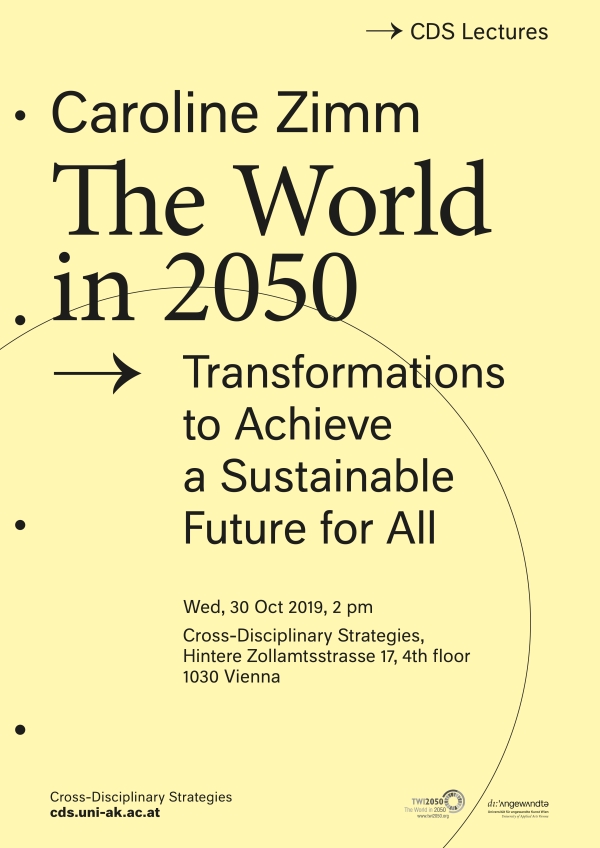The Sustainable Development Goals (SDGs), unanimously
adopted by the United Nations in September 2015, provide an aspirational narrative for the desired future for human development
with an actionable agenda. The aspiration is for a world free from hunger, injustice and absolute poverty, of universal education,
health and employment with inclusive economic growth, based on transparency, dignity and equity, all achieved within the boundaries
of the planet. The urgent question now is how to act on this aspirational agenda and to have a clear understanding of the
full consequences and cost of inaction and the benefits of achieving SDGs.
The World in 2050 (TWI2050) <http://www.iiasa.ac.at/web/home/research/twi/TWI2050.html>
is an initiative designed to help answer these questions. TWI2050 aims not only to contribute to this understanding but also
develop science-based transformational and equitable pathways to sustainable development that can provide much needed information
and guidance for policy makers responsible for the implementation of the SDGs.
Caroline Zimm is a Research Scholar in
the Transition to New Technologies Program, where she works closely with Prof. Dr. Nakicenovic. Currently she works on the
TWI2050 initiative. Her research is concerned with the diffusion of technologies and policies for sustainable development.
Prior to joining International Institute for Applied Systems Analysis (IIASA) in 2014, Ms. Zimm worked in development
cooperation and on consulting projects in the field of rural energy supply, energy access and climate change. She held positions
with the United Nations Industrial Development Organization (UNIDO), a private consulting firm, and the German Development
Agency (GIZ) where she was based in Cambodia and India.
She holds a master’s degree in environmental and resource management
from the University of Applied Life Sciences Vienna - where she majored in renewable energies, a diploma (MBA. equiv.) in
international business administration from the University for Economics and Business Administration Vienna, and a bachelor’s
degree in political science from the University of Vienna. She is currently a PhD candidate at the energy economics group
of the University of Technology in Vienna.




